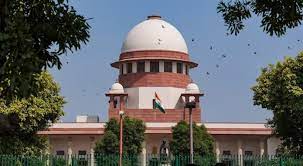
The Supreme Court of India recently dismissed a plea aiming for a complete ban on Pakistani artists from performing or working in India, urging the petitioner not to adopt a “narrow-minded” approach. The bench of justices Sanjiv Khanna and SVN Bhatti upheld the Bombay High Court’s decision to reject the plea filed by Faaiz Anwar Qureshi, a self-proclaimed cine worker and artist.
During the proceedings, the apex court emphasized its reluctance to interfere with the Bombay High Court’s order, emphasizing the importance of a broader perspective. “You should not press this appeal. Do not be so narrow-minded,” remarked the bench.
Furthermore, the Supreme Court declined the submission to expunge certain remarks made by the high court against the petitioner.
The plea sought the court’s intervention to impose a comprehensive ban on any association or engagement between Indian entities and Pakistani artists, encompassing cine workers, singers, musicians, lyricists, and technicians.
Previously, the Bombay High Court had rejected the petition, emphasizing that the relief sought represented a regressive step against the promotion of cultural harmony, unity, and peace. The court’s stance highlighted the essence of patriotism not necessitating hostility toward individuals from neighboring countries.
The High Court underscored the role of a true patriot, defining it as someone selfless and dedicated to their country’s cause, welcoming activities fostering peace, harmony, and tranquility. It stressed that arts, music, sports, and culture transcend national boundaries, fostering unity and harmony within and between nations.
The High Court’s observations included reference to the participation of Pakistan in the Cricket World Cup, crediting the Indian government’s positive steps toward promoting international peace and security, in alignment with the Constitution’s Article 51.
Sources By Agencies

